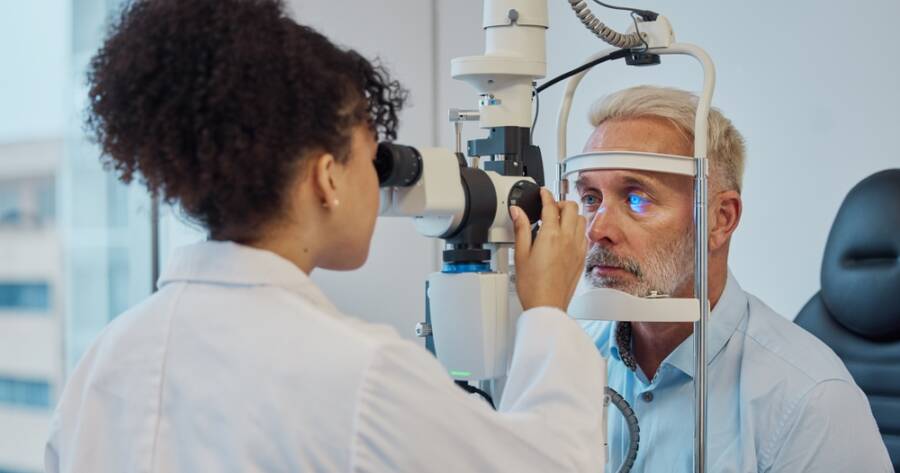Macular degeneration is a leading cause of vision loss, but early detection can significantly slow its progression. Understanding the available treatment options is crucial to preserving your eyesight and maintaining your quality of life as you age.
Macular Degeneration: What You Need to Know
Macular degeneration, a leading cause of vision loss among seniors, affects the central portion of the retina known as the macula.1 This condition primarily impacts sharp, central vision, making it difficult to perform daily tasks such as reading, driving, and recognizing faces. Age-related macular degeneration (AMD) is the most common form, typically occurring in individuals over 50 years of age. AMD is categorized into two types: dry AMD, which progresses gradually, and wet AMD, characterized by abnormal blood vessel growth beneath the retina, leading to rapid vision loss.
Risk factors associated with macular degeneration include advancing age, family history, smoking, obesity, and excessive exposure to ultraviolet (UV) light. While there is no cure for macular degeneration, early detection and proper management can significantly slow its progression and preserve vision.
Treating Macular Degeneration: Options and Benefits
Treatment options for macular degeneration vary depending on the type and severity of the condition. For dry AMD, nutritional supplements containing high doses of antioxidants and minerals, such as the Age-Related Eye Disease Study (AREDS) formula, have been shown to slow disease progression.2
In cases of wet AMD, anti-vascular endothelial growth factor (anti-VEGF) drugs are commonly administered to inhibit the growth of abnormal blood vessels and prevent further vision loss. Photodynamic therapy (PDT) is another treatment option for wet AMD. PDT involves injecting a light-sensitive drug into the bloodstream, which is then activated by a specific wavelength of light, causing the abnormal blood vessels to close. Laser therapy, such as thermal laser treatment, may also be used to seal leaking blood vessels and prevent further damage to the macula.3
Preserving Vision: The Importance of Early Detection
Early detection of macular degeneration is crucial for preserving vision and preventing irreversible damage. Regular comprehensive eye exams, which include pupil dilation to examine the retina, are essential for identifying early signs of the condition. Individuals over the age of 65 undergo a comprehensive eye exam every one to two years. Those with a family history of macular degeneration or other risk factors may need more frequent exams.
Self-monitoring is also important for detecting changes in vision. Individuals should be aware of any sudden changes in their central vision, such as blurred or distorted vision, dark spots, or difficulty recognizing faces. If any of these symptoms occur, it is crucial to seek immediate medical attention.
Learn More About Macular Degeneration
Macular degeneration is a serious eye condition that can significantly impact vision, but with early detection and proper management, its progression can be slowed, and vision can be preserved. To learn more about macular degeneration, its treatment options, and strategies for preserving vision, consult with an eye care professional or visit reputable online resources provided by organizations such as the National Eye Institute (NEI) and the Macular Degeneration Association.




